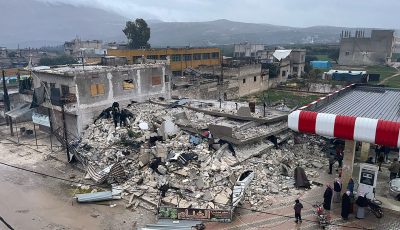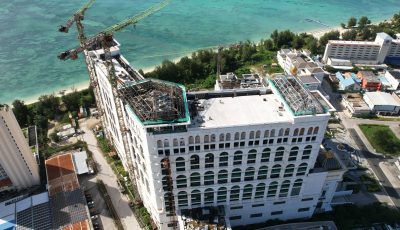CHC: 3 new TB cases on Saipan
By FRAULEINE VILLANUEVA-DIZON
frauleine_villanueva@saipantribune.com
REPORTER
Three new active cases of tuberculosis have been diagnosed on Saipan this month.
Tuberculosis is a disease caused by bacteria and usually affects the lungs but can also affect other parts of the body.
According to Commonwealth Healthcare Corporation-Division of Public Health Services Medical Director Dr. Ngoc-Phuong Luu the cases are not related to each other.
“None of the three cases are linked to each other. This means that one case did not cause the other cases,” Luu said in a press release addressing the public.
However, an active TB case can be contagious.
“There are two types of TB, active and latent (“sleeping” TB). People are only able to give TB to others when they have active TB and are displaying symptoms of active TB such as prolonged coughing,” Luu said.
Both active and “sleeping” TB are treatable, according to the DPH. Treatment varies from six to nine months depending on the type of TB. Medications and appointments are free through the Chest Clinic.
Luu said DPHS and the TB Program/Chest Clinic personnel are actively screening all potentially exposed persons who qualify as “close contacts” of the three active cases.
Just last week, DPH conducted a testing on students and staff of Marianas High School for TB due to possible exposure as a result of a recent active case.
“For those people who test positive, we are offering free assessment and treatment at the Chest Clinic. If you have not been contacted, it means you are not one of the close contacts,” Luu said.
The bacteria of TB can spread through the air through coughing, sneezing, speaking, singing, shouting, or even laughing.
One has a higher risk of breathing in the bacteria when one is in close contact to a person with active TB for prolonged periods of time and exposure occurs in a small enclosed space with poor ventilation.
“Transmission of TB is mainly through respiratory droplets (phlegm/sputum). People who are at highest risk of getting TB from a person with active TB are people who have a large amount of contact time with that person. The spouse, children, and relatives who live in the same house are at highest risk,” Luu said.
“Other people with a higher chance of getting TB compared to a complete stranger are that person’s frequent personal contacts. For example: their co-workers whom they see and talk to regularly,” the doctor added.
Luu added that the chance of getting TB is “essentially non-existent” if a person just happened to have casual contact such as being in the same store, same restaurant, or same church as the person.
“You cannot ‘catch’ TB from touching the same things a person with active TB has touched,” Luu said.
Luu said that the Pacific Islands have a much higher percentage of TB cases than in the U.S. mainland or Europe.
“Lots of people might be infected with “sleeping” TB and not know it. You can go years, even decades, without ‘feeling’ anything or getting sick. As we screen more people, we may detect more TB cases by sheer chance but this does not necessarily mean that we have more TB in Saipan/CNMI,” Luu said.
The Chest Clinic may be contacted at 234-8950, extension 3515 or 3514.



























